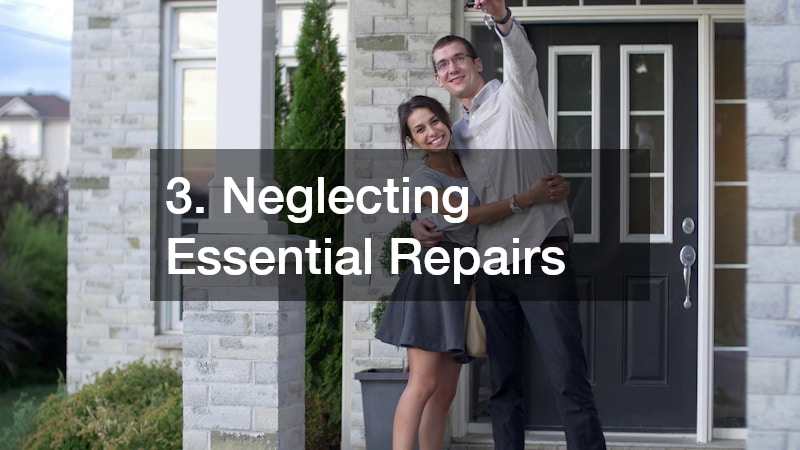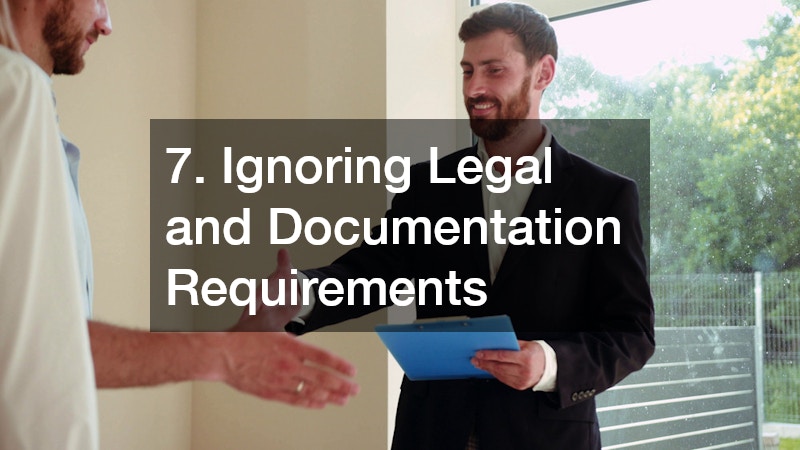Selling your home is one of the biggest financial transactions most people make in their lifetime. Whether you’re moving to a new city, upgrading to a bigger property, or downsizing after retirement, the process of selling your house comes with its fair share of challenges. For many homeowners, what should be a smooth transaction becomes complicated—and even financially damaging—due to simple yet costly missteps.
The real estate market is competitive and nuanced. Buyers are more informed than ever, and first impressions often determine whether your home will sit on the market or sell for top dollar. Making the right choices along the way can not only speed up the sale but also increase the final sale price. On the flip side, overlooking important details or failing to prepare properly can cost you time, money, and peace of mind.
Understanding the most frequent pitfalls can give you a serious advantage in today’s housing market. In this blog, we’ll walk through the most common home selling mistakes—and how you can avoid them. From pricing strategy to pre-listing prep, legal considerations to buyer negotiations, these insights will help you stay focused and avoid the traps that sabotage so many homeowners during the selling process.
1. Overpricing the Home
One of the most widespread home selling mistakes is pricing your home too high from the start. It’s natural to want the best return on your investment, but if your asking price doesn’t reflect market value, you’ll scare off potential buyers. A home that’s overpriced tends to sit on the market longer, which leads to reduced interest, inevitable price cuts, and a stigma that something must be wrong with the property.
The key to getting your pricing right is to rely on a comparative market analysis. A licensed real estate agent will look at recent sales of similar homes in your neighborhood and current market conditions to set a competitive, realistic price. Don’t make the mistake of basing your price on emotion, outdated renovations, or the amount you owe on your mortgage.
Homes that are priced correctly from day one often receive multiple offers and sell quickly. To position your property as a must-see listing, trust data over gut feeling and consult with professionals who know the local real estate trends.
2. Failing to Stage or Prepare the Home
You only get one chance to make a first impression, and for many buyers, that moment occurs before they even walk through the front door. Poor staging—or no staging at all—is one of the most common home selling mistakes sellers make. A cluttered, dated, or overly personalized space can distract potential buyers and make it harder for them to envision themselves living in your home.
The goal is to create a neutral, inviting environment. Start by decluttering and depersonalizing each room. Remove excess furniture to make spaces feel larger and highlight key features like fireplaces, built-ins, or natural light. Hiring a professional to assist with layout and design can be a smart move, especially if your furnishings are mismatched or outdated.
Beyond aesthetics, it’s important to ensure the home is spotless before any showings. This is where professional cleaning services can make a huge difference. Deep-cleaned carpets, sparkling windows, and fresh-smelling bathrooms leave a positive impression and signal that the home has been well maintained.
3. Neglecting Essential Repairs
Another serious home selling mistake is listing a home that clearly needs repairs. Buyers want a property that feels move-in ready—even if they plan to renovate later. When obvious issues like peeling paint, dripping faucets, or broken light fixtures go unresolved, buyers begin to question what else might be wrong with the house.
In more severe cases, problems like water stains, visible cracks, or sloping floors can suggest the need for major investments, such as foundation repair. These red flags often lead to lower offers or buyers walking away entirely after a home inspection.
Take the time to fix cosmetic and functional issues before listing your property. If you’re unsure about the extent of the work required, consider hiring a pre-listing inspector to identify potential deal-breakers. Addressing concerns proactively can reduce the chance of last-minute negotiations or failed contracts during escrow.
4. Skipping Curb Appeal Improvements
Curb appeal isn’t just about aesthetics—it’s your first opportunity to impress a buyer. One of the more subtle home selling mistakes is underestimating how much a home’s exterior influences perception. Peeling paint, an overgrown lawn, or missing shingles can suggest neglect, making buyers less eager to explore the interior.
Simple improvements like fresh mulch, trimmed hedges, a new mailbox, or power washing the siding can dramatically enhance your home’s appearance. Even investing in colorful potted plants or updating your front door hardware can add charm and character.
It’s also worth considering whether your roof or siding needs attention. If your home’s exterior is visibly worn, a consultation with a roofing company may be in order. Even minor repairs can offer peace of mind to buyers and prevent questions about deferred maintenance.
5. Poor Quality Photos in Online Listings
In today’s digital-first market, online listings are often the first touchpoint between a buyer and your home. One of the easiest home selling mistakes to avoid is using low-quality or poorly lit photos in your listing. Smartphone shots, cluttered rooms, or unflattering angles can significantly reduce the number of showings you receive.
Buyers scroll through listings quickly—if your home doesn’t capture their attention immediately, they’ll move on. Investing in a professional photographer who knows how to highlight your home’s best features can make a huge difference.
Quality photos should showcase natural light, open layouts, and unique selling points. Don’t forget to include shots of the backyard, basement, and other areas buyers might be curious about. Comprehensive, visually appealing listings tend to generate more engagement and better offers.
6. Choosing the Wrong Real Estate Agent
Not all agents are created equal, and working with the wrong one is a common and avoidable home selling mistake. The best agent for your friend or relative may not be the best one for you. Your agent plays a critical role in marketing the property, negotiating with buyers, and guiding you through paperwork and closing.
Look for someone who has proven experience in your neighborhood and price range. The best realtors will have strong local knowledge, professional connections, and a well-defined strategy for attracting qualified buyers. Ask questions about their recent sales, marketing approach, and how they handle negotiations.
If possible, meet with multiple agents before choosing who to work with. The right agent will not only help you avoid mistakes but also serve as your advocate, ensuring your interests are protected throughout the transaction.
7. Ignoring Legal and Documentation Requirements
Failing to comply with legal obligations is one of the more serious home selling mistakes and can result in delays, canceled deals, or even lawsuits. Sellers must disclose any known defects or hazards, comply with state and local laws, and ensure all documentation is accurate.
Partnering with a qualified real estate lawyer can give you peace of mind. An attorney will review contracts, explain your obligations, and help resolve any legal concerns that arise. This is particularly important if you’re selling a property with multiple owners, a home inherited through probate, or if you’ve made major structural changes to the property.
Legal guidance helps you navigate the complexities of selling a home and avoid unintentional missteps that could hurt you later. It’s a smart investment in a process that already involves significant financial risk.
8. Overlooking the Importance of Land and Boundaries
While most sellers focus on the house itself, land ownership details are equally important—especially for properties with large lots or unusual layouts. Overlooking property boundaries or legal encroachments is another one of those hidden home selling mistakes that can derail a sale during closing.
Buyers may request proof of lot size or confirmation that structures like fences, sheds, or pools are within property lines. If there’s uncertainty, it can raise red flags or require additional negotiations.
Having a recent report from a land surveying service can speed up the transaction and give buyers confidence in what they’re purchasing. It also reduces the risk of future disputes over boundaries or easements. Getting ahead of these concerns can streamline closing and protect both parties from costly surprises.
9. Failing to Highlight Value-Adding Upgrades
Many homeowners make the mistake of downplaying or failing to mention renovations and upgrades they’ve completed. When listing your home, it’s important to highlight features that add tangible value. This includes anything from energy-efficient windows to updated appliances or new floors.
For example, if you’ve recently worked with one of the best flooring companies to replace outdated carpeting with hardwood or luxury vinyl planks, that’s a major selling point. Buyers love move-in-ready homes with modern finishes, and showcasing those upgrades can justify a higher asking price.
Make sure your agent includes these improvements in the listing description and discusses them during open houses or showings. Visual proof like before-and-after photos or receipts can also add credibility. Transparency and pride in your upgrades can help your home stand out in a crowded market.
10. Waiting for the “Perfect” Offer
Patience can be a virtue, but being too inflexible or holding out for an unrealistic offer can be a major home selling mistake. Some sellers become emotionally attached to a specific price or terms and reject reasonable offers in hopes of something better. This approach often leads to more time on the market and a lower final sale price.
It’s essential to strike a balance between standing your ground and being open to negotiation. Your real estate agent can provide valuable guidance here, helping you evaluate offers based on not just price, but contingencies, closing dates, and buyer financing.
In some cases, the strongest offer may not be the highest—it may be the one most likely to close without complications. Flexibility and realistic expectations are key to navigating the final stages of the transaction successfully.
11. Limiting Buyer Access for Showings
One of the more frustrating home selling mistakes occurs when sellers make it difficult for potential buyers to view the property. Limiting access through restrictive showing windows, requiring excessive notice, or denying weekend appointments can drastically reduce the pool of interested buyers. The more flexible and accommodating you are, the faster your home is likely to sell.
Buyers often work during the day and have limited time to tour homes. If your home isn’t available when it’s convenient for them, they may simply skip it and move on to the next listing. Some buyers also make decisions quickly—especially in competitive markets—and need to visit properties on short notice.
While it can be inconvenient to keep your home show-ready at all times, it’s a temporary sacrifice with long-term rewards. If you’re living in the home during the sale, take steps to make the process easier: store away valuables, set up a checklist to quickly tidy up before showings, and coordinate with your agent to streamline the scheduling process. Making your home available to as many buyers as possible ensures that it receives the attention—and offers—it deserves.
Selling a home can be a rewarding yet complex process. With so many moving parts, it’s easy to make decisions that feel right in the moment but end up hurting your sale in the long run. By understanding and avoiding the home selling mistakes covered in this guide, you’ll be in a far better position to sell your property quickly, efficiently, and profitably.
From ensuring your home is clean and staged to consulting professionals like a plumbing contractor for minor repairs or a real estate lawyer for legal clarity, every step you take toward preparation pays off. Don’t underestimate the importance of working with the best realtors, highlighting valuable upgrades like new flooring, and addressing exterior concerns that might prompt hesitation—whether it involves hiring a roofing company or confirming boundaries with a land surveying service.
If you’re selling in a competitive market where house and land packages are drawing in buyers with turnkey appeal, you need every advantage you can get. That includes anticipating buyer expectations, providing detailed disclosures, and pricing your home in line with market realities.
Ultimately, a well-informed and proactive seller will always fare better than one who leaves things to chance. Avoid these common home selling mistakes, take advantage of expert guidance, and set your property up for a smooth and successful sale. With the right strategy, selling your home can be less stressful—and far more rewarding.











